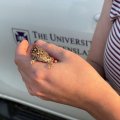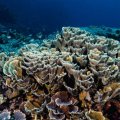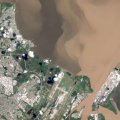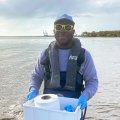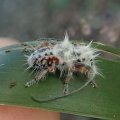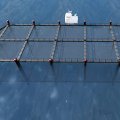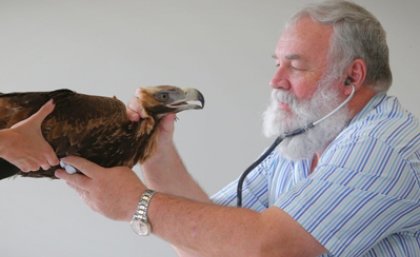
Wedge-tailed eagle Eva has found a new home with Australia Zoo, following treatment from a University of Queensland vet.
The eagle was rescued from a roadside and was thought to have survived an attempt to domesticate her by removing her talons and a toe.
Specialist avian veterinarian Associate Professor Bob Doneley treated the juvenile bird at UQ’s Gatton Campus.
Dr Doneley said Eva the eagle was rescued by a farmer and the Granite Belt Wildlife Carers group and initially was treated at Stanthorpe Veterinary Care Services.
“It appears someone may have tried to domesticate Eva by cutting her talons to keep her from scratching or injuring when handled by humans,” Dr Doneley said.
“As a result, both her feet were swollen and painful and her left hallux – the big toe at the back – has been clipped so short that the last bone in the toe has been cut off and her right hock joint is mildly unstable.”
Unable to use her right foot, Eva was standing mostly on her left foot, where she had developed pressure sores from the stress.
Dr Doneley, one of only two bird medicine specialists in Queensland, consulted with Professor Patrick Redig of the University of Minnesota Raptor Centre, a world leader in the treatment of this type of bird.
She's since been transferred to the Australian Wildlife Hospital at Australia Zoo. When her rehabilitation is complete, she will be able to be placed in a zoo and be used as an educational tool to teach people why wildlife can't be kept as pets.
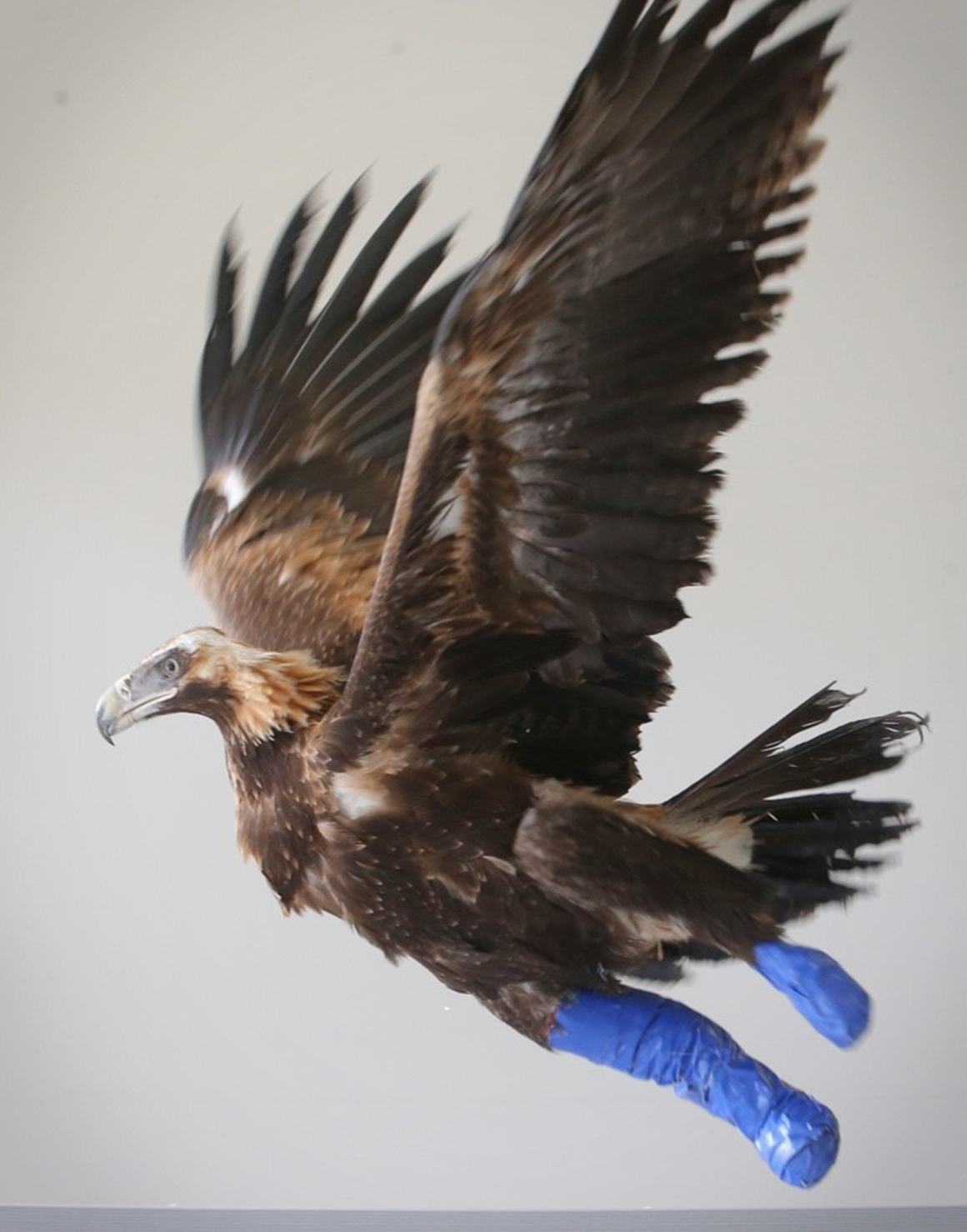
Staff at the centre are dealing with a rising number of injured wildlife cases.
“They are brought in after collisions with cars or attacks by cats, dogs or feral animals,” Dr Doneley said.
“We also regularly see evidence of human attempts at domestication, despite the protection of these animals by legislation.
“These attempts often result in the serious injury or death of the animals.”
The UQ Veterinary Medical Centre receives no government funding to treat injured wildlife, and relies on community donations and in-kind support. Donations can be made through: https://www.uq.edu.au/giving/donations/fund/School_of_Veterinary_Science.
Anyone finding injured wildlife, should call 1300 ANIMAL (1300 264 625), to reach a State-wide service linking callers local wildlife care groups.
Media: Karli Kolleger, Faculty of Science communications, +61 7 5460 1279, k.kollegger@uq.edu.au.


